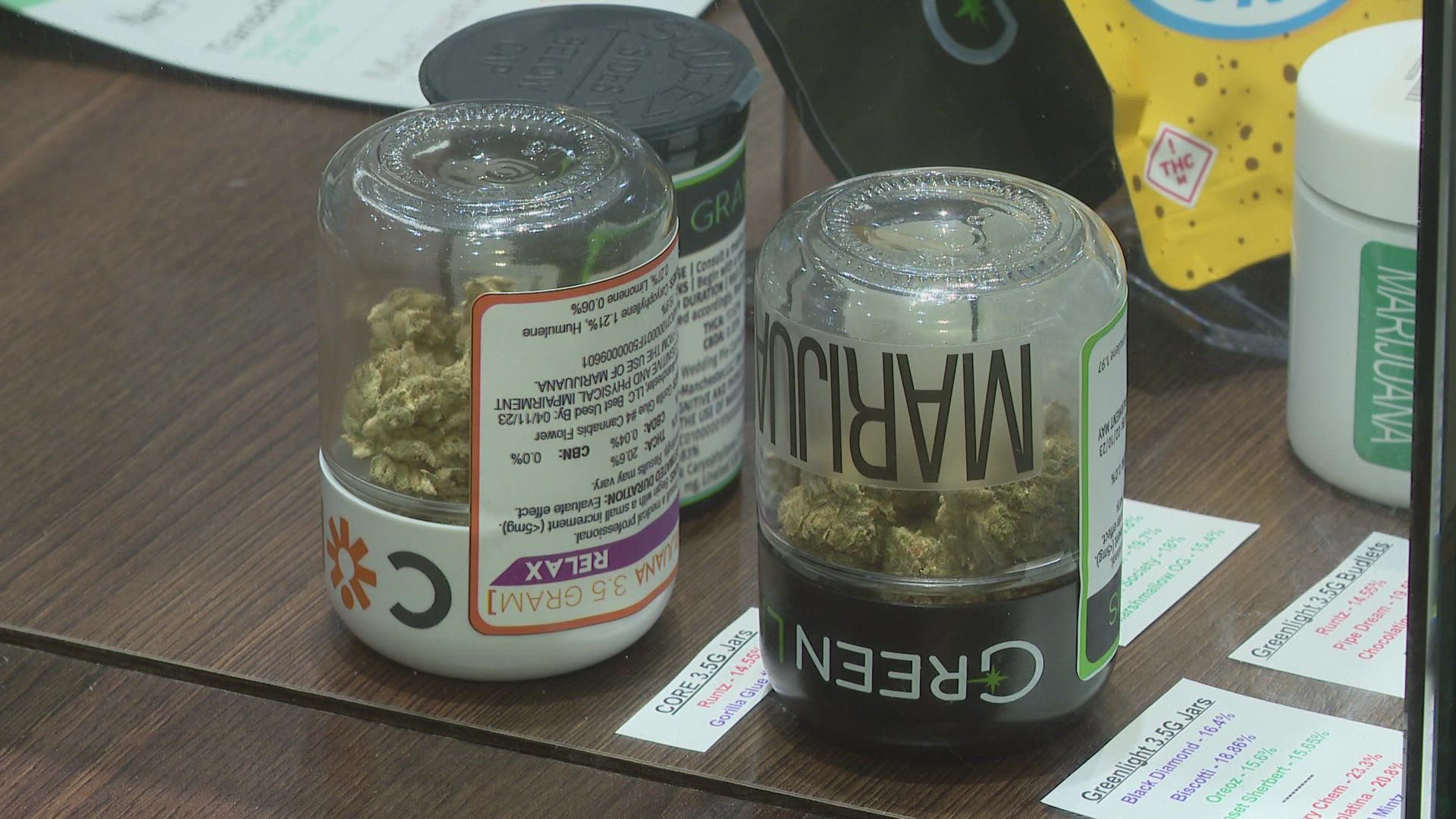ST. LOUIS, Missouri — As Missouri voters prepare to head to the polls next Tuesday, medical marijuana dispensary owners and investors are banking on their support for a ballot question that promises to open up the industry to legal recreational use for adults 21 and over.
Tom Bommarito, a partner at Greenlight dispensary shops, projects his business could triple its customer base if the state backs Amendment 3.
"The more we grow, the cheaper it gets," Bommarito said Monday afternoon. "Once we get to (recreational), that makes most of these stores from losing money to maybe making some money. So the industry will stabilize and then prices will come down."
The ballot question would authorize the state to collect a 6% marijuana tax on top of the regular state sales tax. Local governments could also collect an additional 3% to prop up their city budgets.
While industry insiders promote the possibilities of an expanded market for its ability to fund veterans health care, public defenders and drug abuse treatment programs, a broad cross-section of Missouri's prominent political leaders have voiced opposition to portions of the proposal.
Gov. Mike Parson recently resisted calls from President Joe Biden to expunge and pardon prior cannabis convictions and said he would not support Amendment 3.
In a recent interview on The Record, Secretary of State Jay Ashcroft said he also opposed the plan to change the state's constitution.
"I don't think this amendment is good for the state," Ashcroft said. "It's way too much to put in the constitution. If you think marijuana should be decriminalized in state law, the amendment should say something to the effect of, 'The recreational use of marijuana in the state of Missouri is not unconstitutional and may be regulated by general statute."
State representative Ron Hicks, a Republican from Defiance, supports the movement to legalize marijuana but also disagrees with the push to bake it into the constitution.
"If (the federal government) tomorrow lifted it as a Schedule One drug, but yet we passed this, it would be in our constitution as an illegal drug," Hicks said. "But everywhere else it's not. If you have more than 3 ounces on you, that's illegal."
Supporters of the proposal said the legal limits in the proposal were reasonable and predicted they could reduce Missouri's 20,000-plus marijuana-related arrests every year by 98%.
"As long as you're within the possession limit and you're over 21 years of age, there is no possibility of any kind of discipline from the state," Legal MO 22 campaign manager John Payne said.
Hicks argued the state should remove all limits on licenses and amounts customers can purchase and possess and allow the free market to take its course.
Other critics of the plan, like progressive Democrats Tishaura Jones and Cori Bush, have supported broader equity and decriminalization efforts.
In a 2020 tweet, Bush said those who suffered the most during the war on drugs should be the ones who profit the most in the next chapter of legalization. Critics of the new amendment claim it would shut many of those communities of color out of the profits or at least limit their ability to compete with the medical marijuana companies that already have a significant head start.
According to Payne, Amendment 3 would "automatically expunge the records for people with minor marijuana offenses, with the exception of sales to minors, driving under the influence, and any offense involving violence."
Charlie Unger, a dispensary worker at Greenlight, said the cannabis industry has potential to do more than boost the bottom line for the business or the state.
"We're helping people break 40-year pain prescription habits," he said. "My generation, it's no secret. I'm from St. Louis County, and the amount of funerals that I have been to from people that were pushed into opioid dependency is staggering."
The midterm election is on Nov. 8.
To watch 5 On Your Side broadcasts or reports 24/7, 5 On Your Side is always streaming on 5+. Download for free on Roku or Amazon Fire TV.

